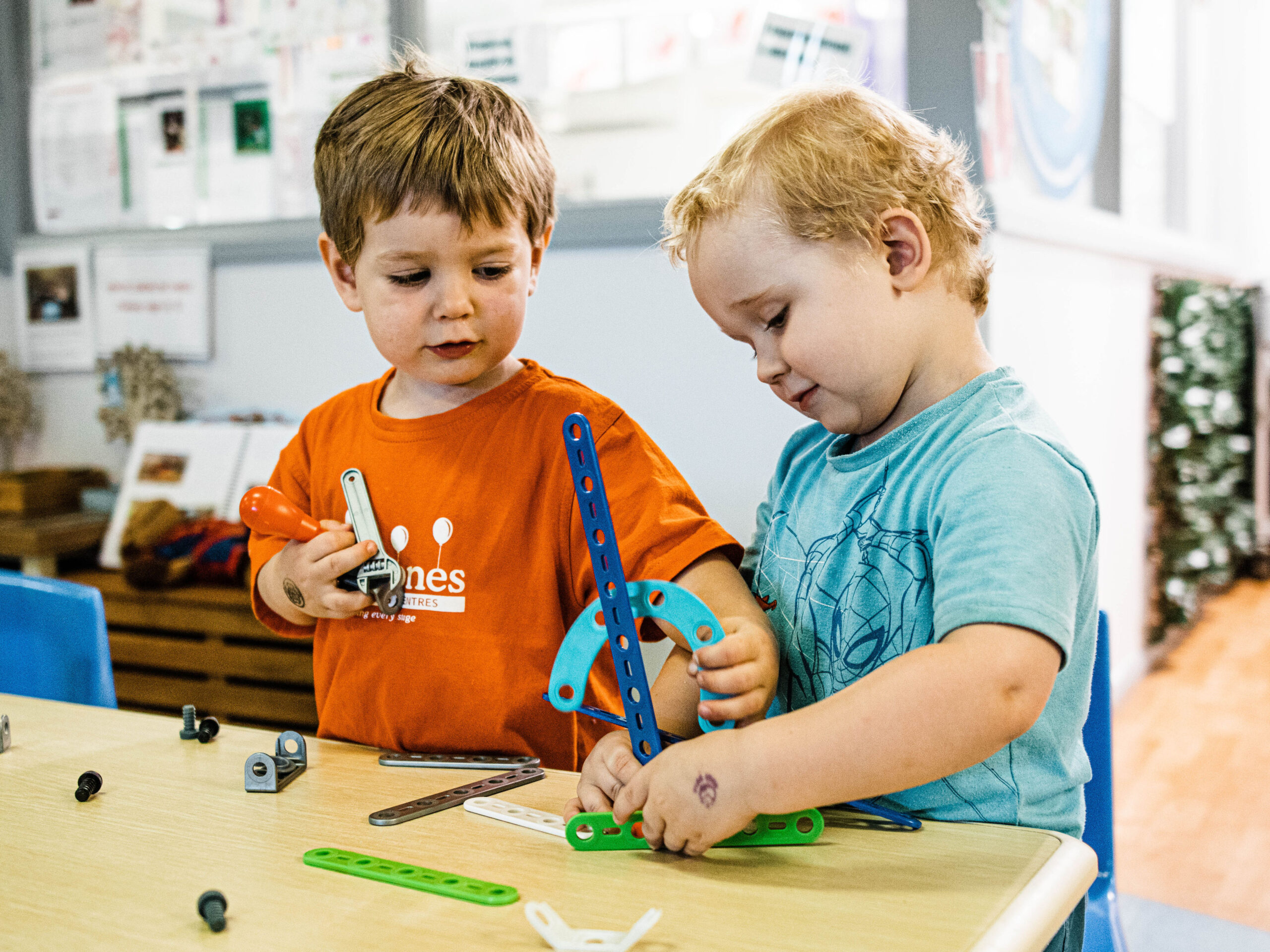
From the moment they are born, children begin forming connections with the world around them. Social development in early childhood - the ability to form meaningful relationships with peers, educators, and family members - is a crucial part of early childhood development. At Milestones Early Learning, we recognise that strong social bonds lay the foundation for emotional intelligence, communication skills, and lifelong learning.
In this blog, we’ll explore what social connectivity in early childhood is, why it’s essential for children under five, how it develops in early years, and how high-quality child care fosters these critical skills.
What Is Social Connectivity in Early Childhood?
Social connectivity in early childhood refers to the ability to form and maintain relationships with others. For young children, this begins with interactions with parents and caregivers before expanding to friendships with peers. Social connectivity encompasses several key skills, including:
- Communication – Learning how to express thoughts, emotions, and needs.
- Empathy – Understanding and responding to the feelings of others.
- Collaboration – Engaging in cooperative play and teamwork.
- Problem-Solving – Navigating social challenges and resolving conflicts.
- Confidence – Feeling secure in relationships and interactions with others.
These skills are not innate; they are developed through everyday interactions, guided by nurturing educators and caregivers.
Parents often ask: "How can I help my child develop social skills?" The key is providing opportunities for positive interactions at home and in early learning settings.
Why Is Social Connectivity Important for Children Under Five?
According to research from the Australian Early Development Census (AEDC), 81% of children who demonstrate strong social skills in early childhood are more likely to succeed in school and beyond.
Social connectivity plays a vital role in a child’s overall development. Research shows that children who form strong social bonds in early childhood experience:
- Better emotional regulation – Socially connected children are better equipped to manage emotions, reducing the likelihood of anxiety and behavioural issues.
- Stronger communication skills – Early interactions help children develop language skills, enhancing their ability to express thoughts and emotions.
- Improved academic readiness – Children who engage in positive social interactions are more likely to adapt well to structured learning environments.
- Higher resilience – A strong sense of belonging and connection helps children cope with challenges, fostering confidence and independence.
- Lifelong friendships – The friendships formed in early childhood often become a source of security and support as children grow.
At Milestones Early Learning, we prioritise social development as part of our holistic approach to early education, ensuring every child feels valued, heard, and connected.
Learn more about our Lifelong Learning Curriculum - Australia's most advanced approach to early childhood education, developed by Affinity Education.
How Milestones Early Learning Fosters Social Connectivity
At Milestones Early Learning, our Lifelong Learning Curriculum, guided by the Early Years Learning Framework (EYLF), is designed to support social development in early childhood through:
1. Play-Based Learning
Play is one of the most effective ways for children to develop social skills. Through structured and unstructured play, children learn how to:
- Take turns and share
- Work together in groups
- Express their emotions appropriately
- Develop problem-solving skills
Our classrooms encourage both independent and group play, providing opportunities for children to practice social interactions in a safe and nurturing environment.
2. Positive Educator-Child Relationships
Our highly trained educators play a crucial role in guiding social development. By modeling positive interactions, fostering inclusive play, and providing gentle support, they help children build confidence in social settings.
3. Group Activities and Collaborative Learning
From circle time discussions to group projects, our programs encourage collaboration. Singing songs together, storytelling, and engaging in creative arts activities help children strengthen communication and teamwork skills.
4. Conflict Resolution and Emotional Coaching
Learning to navigate social challenges is a key part of early development. Our educators teach children problem-solving strategies, encouraging them to use words to express feelings and find resolutions with peers.
5. Inclusion and Diversity
At Milestones, we celebrate diversity and teach children to appreciate different backgrounds and perspectives. Our curriculum includes multicultural activities, books, and celebrations that help children understand the world around them.
Read more about our inclusive learning approach here.
Developmental Milestones in Social Connectivity
Parents often wonder what social skills to look out for in their child’s early years. While every child develops at their own pace, the following are common social development milestones:
By Age 1:
- Recognises familiar faces
- Responds to their name
- Engages in simple games like peek-a-boo
By Age 2:
- Begins to play alongside (parallel play) other children
- Shows affection for caregivers
- Copies actions and words from adults
By Age 3:
- Engages in imaginative play
- Takes turns and begins to share
- Expresses a range of emotions
By Age 4-5:
- Forms friendships and prefers group play
- Understands social rules (e.g., waiting for a turn)
- Uses words to solve conflicts
- Shows empathy and concern for others
If a child experiences delays in social development in early childhood, early intervention and supportive environments - like those at Milestones Early Learning - can help them build confidence and improve social skills.
Frequently Asked Questions (FAQ)
Give Your Child the Best Start
Social connectivity in early childhood is a fundamental aspect of early development, shaping the way children interact with the world throughout their lives. At Milestones Early Learning, we provide a nurturing environment where children build meaningful relationships, develop social skills, and gain the confidence to connect with others.
Through our Lifelong Learning Curriculum, guided by the Early Years Learning Framework, we ensure every child is supported in their social journey - one friendship, one conversation, and one shared moment at a time.
Give your child the best start in life. Find your nearest Milestones centre and book a tour today and see firsthand how we foster social development in early childhood!
